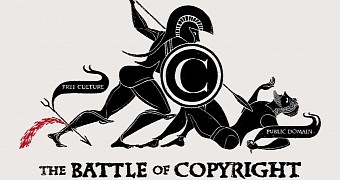The copyright laws are about to change in the European Union, and the plan is to bring them up to date, but Mozilla says it will significantly impact the freedom of Internet users.
The European Union does have copyright laws, but they are outdated and not designed for this age. For the most part, the legislation is taken care of by the member states, but that also means they don’t have the same power.
On the other hand, regulating copyright laws is always going to be a tricky problem, and someone will get upset, be it the copyright holders or the people that want to make use of protected material.
Mozilla says that freedom and openness is threatened
The Mozilla Organization is a US-based non-profit, and some people might think that their stance might be a strange one, but this is not the first time when the organization took a position on laws that could limit online access to users.
A new proposal is going before the European Parliament Committee on Legal Affairs for a vote, on October 10. It’s a big project aimed to regulate copyright laws across the European Union, but Mozilla feels that in its current state it’s going to limit individual rights, and subsequently the users’ freedom online.
This is a big claim, but anyone can take a look at the proposition. Unfortunately, if you’re not a lawyer or at least have some understanding of the law, it’s difficult to figure out what the document is really proposing.
“It’s an absurd proposition”
Mozilla’s stance on the new copyright laws is pretty clear, and it’s been expressed by its Senior EU Policy Manager. “Many aspects of the proposal and some amendments put forward in the Parliament are dysfunctional and borderline absurd. Many aspects of the proposal and some amendments put forward in the Parliament are dysfunctional and borderline absurd,” said Raegan MacDonald.
The biggest problem, according to Mozilla, is that everything that people will post online will have to go through a filter that determines the copyright holder, and that can even include people’s personal photos.
Furthermore, linking to news outlets or using snippets of information from other articles or original work, even if it’s done properly, could fall under this new law. What’s even worse is that platforms such as Wikipedia or Deviantart will have to have systems in place that filter out content to makes sure that it’s not violating the law.
You can check the document that’s being voted on the official website of the European Parliament. If you want to get involved, make sure to give your representative in the EU Parliament a mail or a call and express your concerns.

 14 DAY TRIAL //
14 DAY TRIAL //